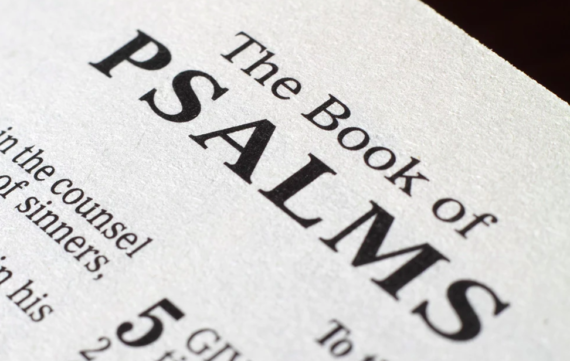Psalm 37
We are often troubled by the success of evil. This psalm is one of the key biblical passages addressing that situation. It is a long psalm. We cannot cover it in detail, but we will note the main ideas. It is an acrostic psalm, so the organisation of the thoughts is difficult when read in a language other than Hebrew. But from this psalm we can see several useful ideas for dealing with the problem of evil.
Negative advice
First there is the negative advice: Do not fret about evil people (1).






Tofret is to become unhappy, bad-tempered, or anxious about something. The parallel line in verse one (be not envious of wrongdoers) suggests that we especially avoid envy of their success.
The point seems to be that whenever the wicked get too much of our attention, even though it be negative attention, evil has gained a victory.This does not mean that we should ignore evil when we are in a position to do something to stop it. Proverbs 25:26tells us, “Like a muddied spring or a polluted fountain is a righteous man who gives way before the wicked.”
We should do something about evil when we can. But when it is beyond our power to stop the evil doer, we are better off to not think about them than to fret over them.
The passive advice
Then there is the passive advice: “Trust in the Lord” (3a).
While first stated at verse 3, this idea is repeated in various ways. We should “delight ourselves in the Lord” (4). We should “commit our way to the Lord” (5). We should be still before the Lord and wait for him (7). “Wait for the Lord” is repeated near the end of the psalm (34).
God promises that it will better in the long run if we stick to the Lord’s ways. But it does not always appear to be better in the short run. This psalm recognises and responds to that dissonance.
When we fail to trust the Lord, several bad things can happen. We might turn to evil ourselves. We might, in our love for what is good, take matters into our own hands and defend the good by desperate, even evil, means.
Positive advice
There is also some positive advice: “do good” (3b).
It is not enough to stop thinking about the evil and keep our trust in God, we must put our faith into action. The idea is repeated in different ways. “Turn away from evil and do good” (27). “Wait for the Lord and keep his way” (34).
Some of us struggle with depression no matter what, but we make the problem worse by inactivity. We have too much leisure time today. “No, not me,” we say, “I am terribly busy.” How much of what we are busy doing is really a matter of life and death or a matter of eternity? Most of us spend very little time dealing with the critical issues of life and eternity. No wonder we are depressed. To deal with the depressing influence of evil we must stay busy doing what is good.
One more thing
Finally, there is a brief mention of one other thing that helps: “Mark the blameless and behold the upright” (37).
In other words, find some good people to keep your eyes on and then the bad folks will not bother you so much. Evil has been and will continue to be. We will not escape it inside or outside the church. If we will trust the Lord, do his will, and associate with those of his people doing their best to do the same, we will be all right.

